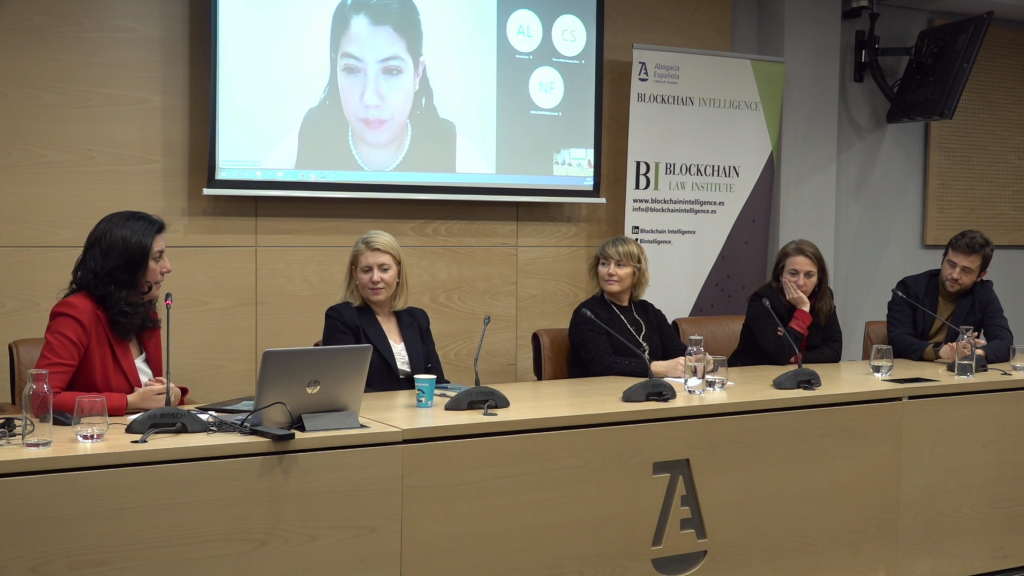
Conference on Digital Economy and Finance: An In-Depth Analysis of Digital Transformation in Financial Markets
On 26 and 27 February, the Digital Economy and Finance Conference, an event organised by Blockchain Intelligence in collaboration with the PID2020-113447RB-I00 project on the digitisation of financial markets, was successfully held. This event brought together leading industry experts and practitioners to explore and discuss the challenges and opportunities presented by digital transformation in financial markets.
One of the key questions addressed during the conference was how blockchain technology, artificial intelligence and other technological advances are impacting the digital economy and finance. Throughout two days of intense discussions, topics such as the innovation of the traditional economy with blockchain and AI, the evolution of the legal issues surrounding digital markets, tokenisation and its regulation, as well as the use of tokens to implement public policies and create real economy markets in metaverses, among others, were analysed.
The conference comprised several panel discussions, each focusing on a key aspect of digital transformation in financial markets.
The panel discussion on the evolution of the legal issues surrounding digital markets featured Alberto Ruiz Ojeda, Professor of Administrative Law at the UMA; Luz María García Martínez, Permanent Professor of Labour Law at the UCM; Luis Felipe López Álvarez, Professor of Administrative Law at the UDIMA; and Belén Lara Ros, Professor of Labour Law at the UMH and CEO of Blockiure. The speakers discussed the legal challenges faced by companies in a digital environment, especially in areas such as data protection, cybersecurity and the regulation of cryptocurrencies.
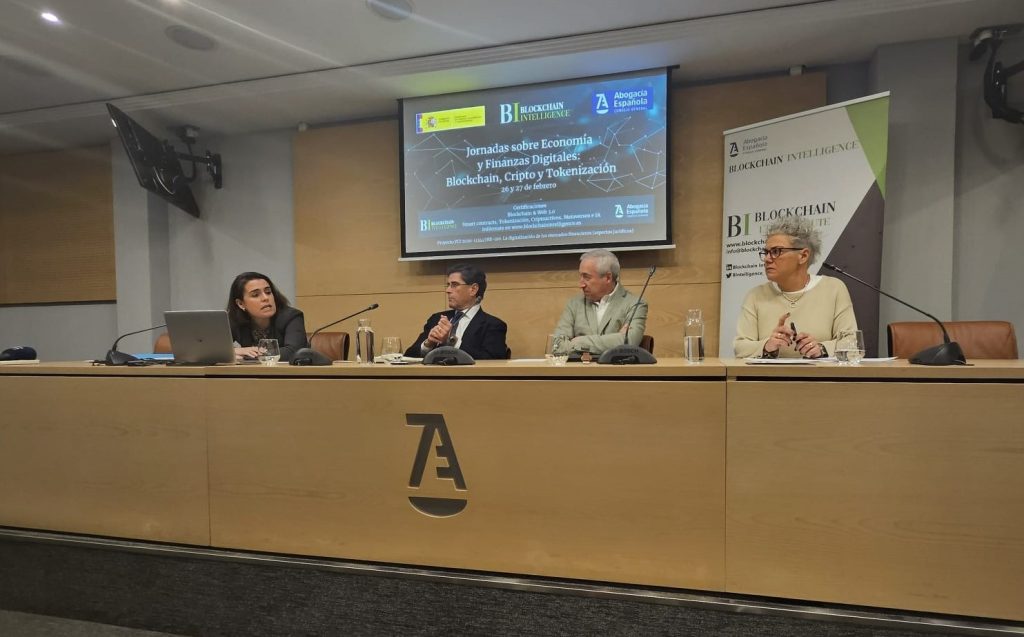
The roundtable on tokenisation and its regulation in the Cryptoasset Markets Regulation featured Virginia García Trevijano, from Mercados Abbaco; Cristina Guerrero Trevijano, Professor of Commercial Law at UCM; Alfonso Martínez-Echevarría, Professor of Commercial Law at CEU San Pablo; Ana Felícitas Muñoz Pérez, Professor of Commercial Law at URJC; and Rosa Galán Sánchez, Professor of Financial Law at UCM. These experts explored the legal and regulatory implications of asset tokenisation, as well as the challenges and opportunities that this technology presents for financial markets.
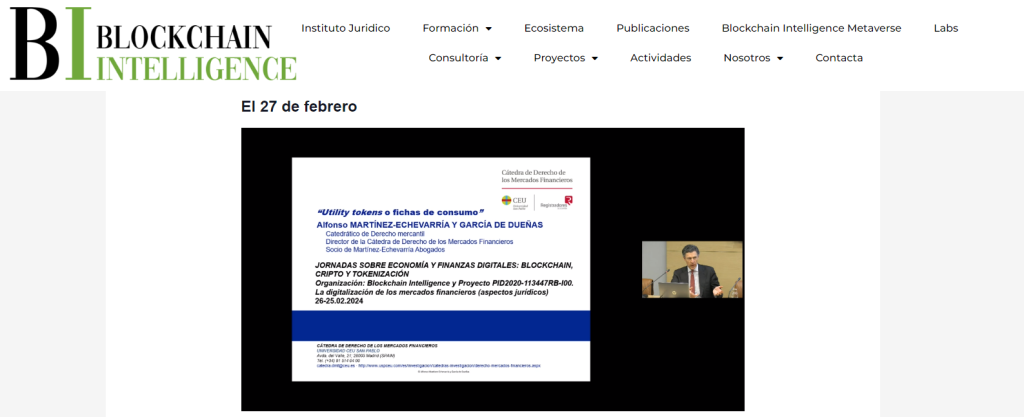
The round table on Data, Digital Identity, Payment Services, moderated by Almudena de la Mata from Blockchain Intelligence, was attended by Carmen Pastor Sempere, Professor of Commercial Law at the UA; Cristina Timón López, Doctoral Researcher at the UM; and Lucas Carmona Ampuero from TEKNEI. These experts discussed the importance of digital identity and payment services in the digital age.
At the round table on Digital payment services: from crypto to digital Euro. Operational and money laundering, moderated by Isabel Fernández Torres of UCM, José María López Jiménez, Associate Professor at UMA and Unicaja; Pablo Sanz Bayón, Professor of Commercial Law at ICADE; Emilio Díaz Ruiz, Professor of Commercial Law at UCM; and Xavier Codina García-Andrade, Professor of Administrative Law at CUNEF. These experts analysed the evolution of payment services and their impact on the digital economy, as well as the challenges in terms of operations and money laundering.
José Zapata Sevilla, Postdoctoral Researcher at the UMA, and Nuria Fernández, Professor of Commercial Law at the University of Alicante, participated in the round table on DeFI and DAOS. These experts analysed the impact of Decentralised Finance and Decentralised Autonomous Organisations in the digital economy, as well as the legal and regulatory challenges posed by these new forms of financial organisation.
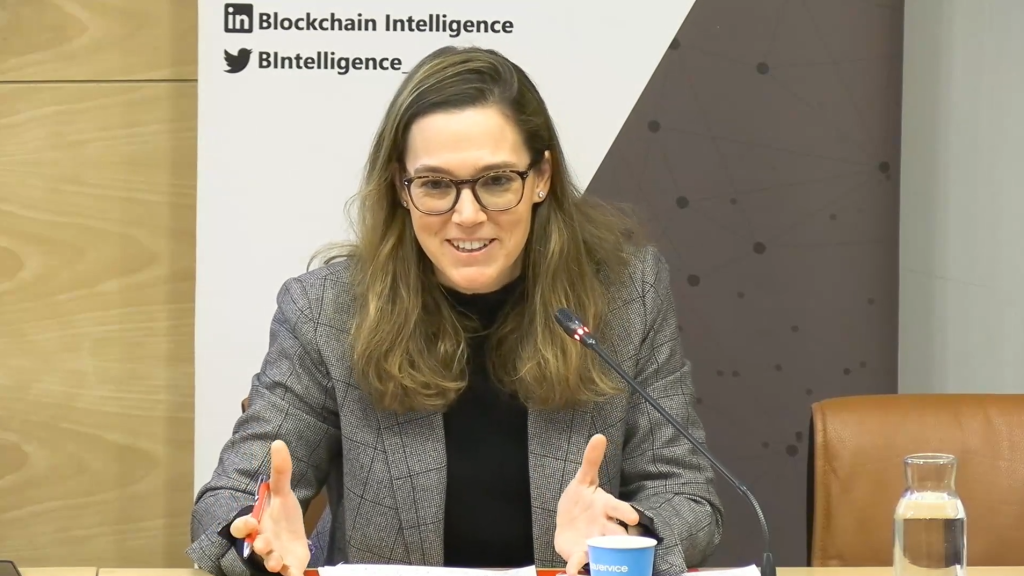
Finally, the round table on business cases included Mª Angeles Serrano, SSJJ, BBVA Switzerland; Jorge Soriano, CEO of Criptan; Carmen Chicharro, Innovation Director of Metrovacesa; Maria José Ruiz de Olano, Legal Director of Karpatkey DAOS; Yael Oaknín, CEO of Token City; and Almudena de la Mata, CEO of Blockchain Intelligence. These experts shared success stories and strategies to expand the possibilities of contracting, payments and financing of the real economy through digital means.
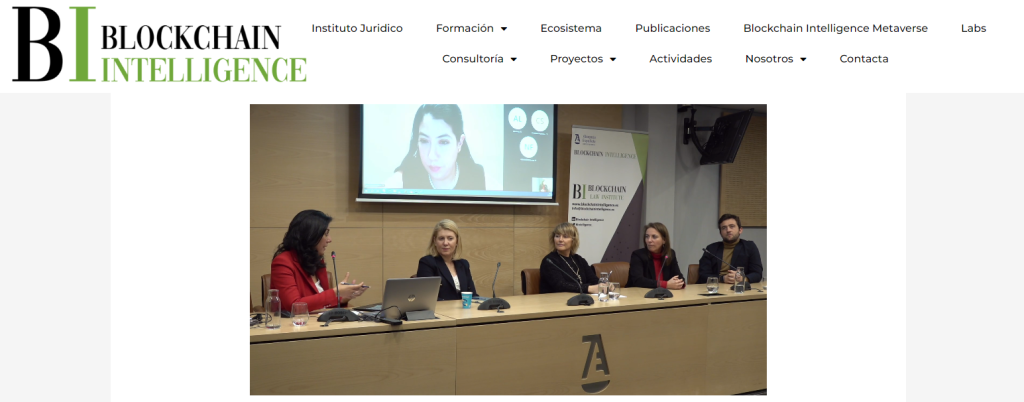
Almudena de la Mata shared details about the DivAirCity project, which aims to improve air quality in cities through citizen participation and social equity criteria. This project is developing a system based on Tokenisation, Smart Contracts and Sovereign Digital Identity to remunerate citizens for their contribution to improving air quality. Cities such as Aarhus, Bucharest, Castellón, Orvieto and Potsdam are part of this initiative. In addition, Almudena talked about the DivAirCity dApp, as well as the Blockchain Intelligence educational metaverse, where students have access to put into practice everything they learn during their certifications in Blockchain & Web 3.0, Smart Contracts, Tokenisation and Cryptoassets.
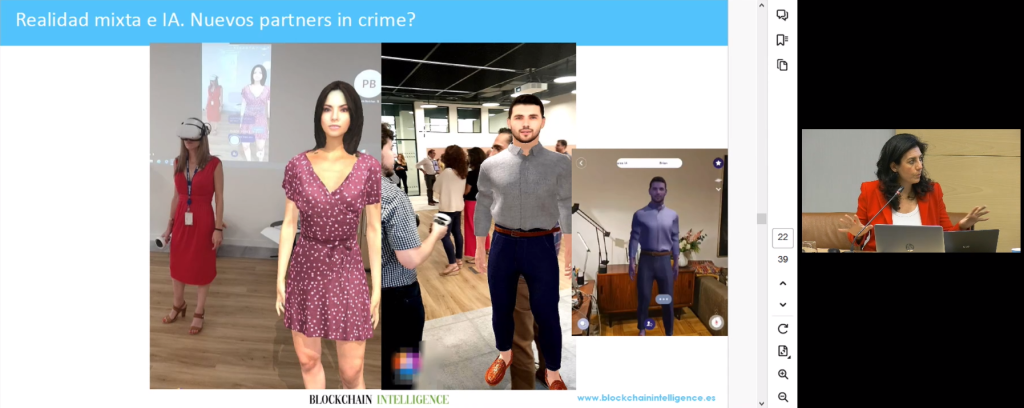
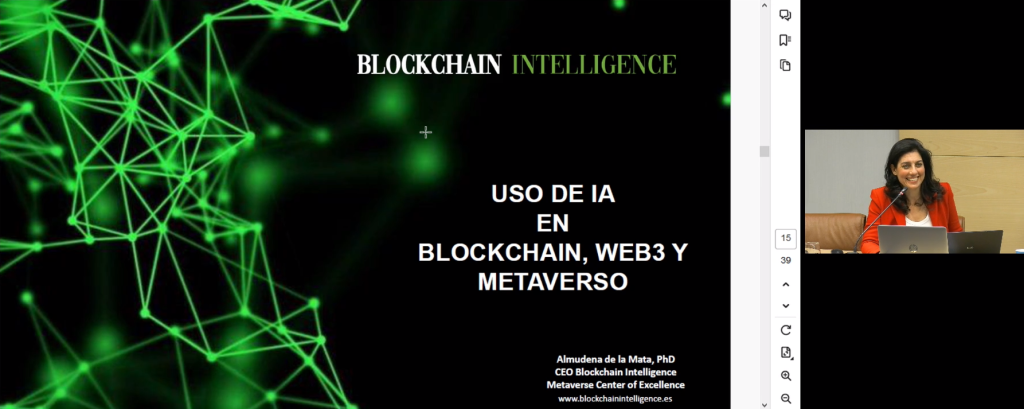
In summary, the roundtables at the Digital Economy and Finance Conference provided an in-depth and enriching analysis of the challenges and opportunities presented by the digital transformation in financial markets, as well as the key trends and strategies for making the most of new technologies in this area.
